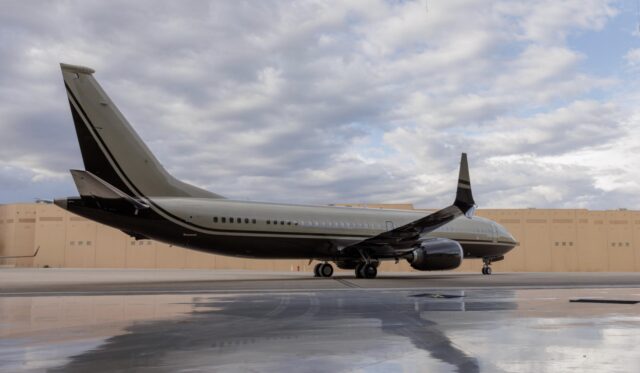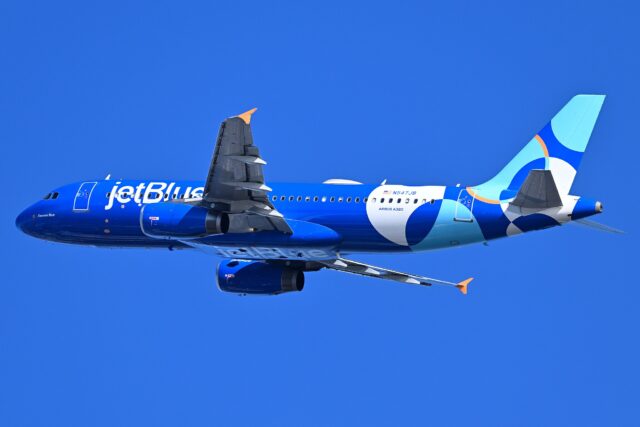It’s official: Project Bromo signed and sealed by Thales, Airbus and Leonardo

October 23, 2025

Following reports that three of Europe’s biggest aerospace companies – Thales, Airbus and Leonardo – were close to signing a cooperation agreement for a new space company, the partners have confirmed that the deal has gone ahead. The partners have signed a memorandum of understanding to progress ‘Project Bromo’, with a view to launching the new company in 2027.
The agreement will see the three companies combining their respective space activities into a new entity, seeking to produce a company of the size and scale required to secure a strong European foothold in space. In a joint statement, Guillaume Faury, Chief Executive Officer of Airbus, Roberto Cingolani, Chief Executive Officer and General Manager of Leonardo and Patrice Caine, Chairman & Chief Executive Officer of Thales, said:
“This proposed new company marks a pivotal milestone for Europe’s space industry. It embodies our shared vision to build a stronger and more competitive European presence in an increasingly dynamic global space market. By pooling our talent, resources, expertise and R&D capabilities, we aim to generate growth, accelerate innovation and deliver greater value to our customers and stakeholders.”

“This partnership aligns with the ambitions of European governments to strengthen their industrial and technological assets, ensuring Europe’s autonomy across the strategic space domain and its many applications,” the statement continues. “It offers employees the opportunity to be at the heart of this ambitious initiative, while benefiting from enhanced career prospects and the collective strength of the three industry leaders.”
The initiative has been widely coined ‘Project Bromo,’ reportedly an internal working title, named after an Indonesian volcano. None of the partners reference this name in today’s announcement, and there will likely be a far more glamorous monicker applied to the entity once (and if) it takes off.
Project Bromo: What we know so far
The overarching goal of the project is to create a single, powerful European space manufacturer that can compete with big global players like SpaceX (US), Amazon’s Kuiper, and China’s growing satellite sector.
Right now, Europe’s satellite industry is fragmented, with companies investing separately in research and development, and working on disparate systems and solutions. By pooling technology and expertise, the partners can share costs on research and production, and build a more complete offering that covers everything from satellites to space-based services.
Specifically, the consortium has shared the contributions of each individual partner:
- Airbus: Airbus Defence and Space will contribute with its Space Systems and Space digital businesses
- Leonardo: Its Space Division will contribute, including its shares in Telespazio and Thales Alenia Space
- Thales: Its contribution will mainly come from shares in Thales Alenia Space, Telespazio and Thales SESO
Ownership is shared relatively evenly, with Airbus taking a slightly larger share at 35%, while Thales and Leonardo will take 32.5% each.
Can Europe create a satellite company to rival SpaceX?
If the transaction goes ahead, the new entity will have more than 25,000 employees across Europe, and an estimated annual turnover of €6.5 billion ($7.54 bn).
To put that in perspective, SpaceX has a workforce of around 13,000, although its 2025 turnover is expected to be in the region of $15 billion. Amazon Kuiper, at an earlier stage of development, expects to turn over $7.1 billion by 2032.

More important than the size itself is the expertise that’s being combined between these companies. Individually, each of the three players has been pioneering in the space industry for years, and each has a wealth of data on which to draw for future developments.
Consolidating like this also puts the new entity in a strong position to boost efficiencies. Big, government contracts will be easier to bid for as a combined force, and procurement will be more effectively negotiated for.
While today’s agreement solidifies the intentions of the parties, it’s not a done deal yet. Employees will need to be consulted on the project, and regulatory clearances will need to be secured. The partners hope to have the entity up and running by 2027.
Will the Airbus-Thales-Leonardo satelite tie up stand up to competitive scruitiny?
Regulatory scruitiny could be strict, particuilarly as Project Bromo creates a company with a near monopoly on European satellites. Airbus is Europe’s biggest satellite manufacturer, and its main competitior is Thales Alina Space. The European Commission’s Directorate-General for Competition (DG COMP) will want to understand what the impact of this will be.
However, there is a precedent for a tie up like this. In 2001, MBDA brought together the missile divisions of Airbus (then EADS), BAE Systems and Leonardo (then Finmeccanica) for similar reasons. The European Commission did review the merger, but ultimately approved it with conditions, arguing that:
- The missile market was already dominated by large non-European firms,
- Europe needed scale to remain competitive, and
- The merger would not eliminate all European competition (since other companies existed in the space)
While that might lend some confidence to the present situation, the regulatory landscape has changed a great deal since then. Space has become far more commercialised in 2025 than missiles were in 2001, and the EU has more robust competition enforcement. Nevertheless, it’s likely the DG COMP will see the pressing need for a European satellite competitior, and will probably approve the merger eventually, albeit with some conditions.
















